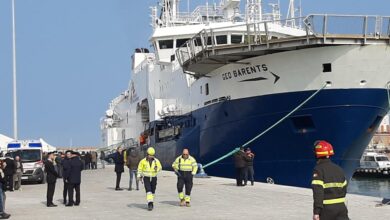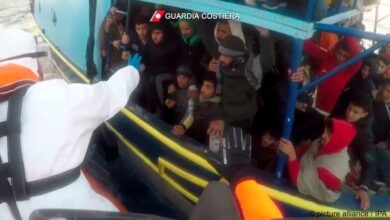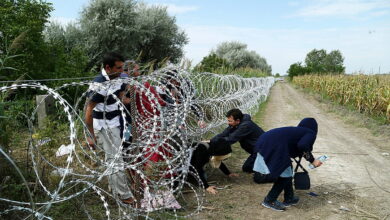Spanish police forcibly expel migrant workers

BY|Anadolu Agency
Amid chaos and confusion, Spanish police forcibly evicted an estimated 450 migrant workers from the El Walili settlement in the southern province of Almeria on Monday.
Dozens of police officers converged on the settlements as helicopters flew overhead to control the eviction of residents from places some had called home for years.
The plan was to demolish the entire shantytown, but first a fire broke out, causing residents to flee with whatever they could gather.
“These are my only belongings,” Abdul, a migrant worker employed in greenhouses in the area, told Spanish daily El Pais, holding a plastic bag.
“We don’t know where we’re going to go now,” added the man, who said he had been living in the settlement since 2015.
Firefighters extinguished the blaze quickly, but Serigne Mbaye, a Senegalese activist and Madrid politician who was on the scene, suggested that the fire was more than a coincidence.
“This was clearly a strategy to make people have to leave because they were in danger. This is not humane. Immigrants are exploited, used, and thrown away,” he told local media.
The eviction and destruction of the informal settlement was ordered by the local government and backed by a court. The El Walili camp was made up of small homemade shacks and, like many other migrant worker settlements in Spain, had no electricity, running water, or garbage collection.
The court said it had to be destroyed because it “represented an imminent danger to its residents” due to fire risks, unsanitary conditions, and unstable buildings.
Local authorities are offering the settlement’s former habitants temporary residence in an emergency shelter for a two-month maximum. After that, migrants are being told that their housing situations will be sorted out on a “case by case” basis, according to El Pais.
Lack of dialogue, reports of poor conditions
Migrant worker associations have denounced the lack of dialogue between the camp’s residents and the local government around evictions and alternative housing.
Several other similar settlements still remain in the area.
Fernando Plaza, spokesperson for the human rights organization APDHA, said El Walili is being destroyed because it’s visible, right off the highway, and “gets in the way of tourists’ views.”
Almeria, located in southeastern Spain, is often dubbed “the plastic sea” due to its massive concentration of greenhouses. The settlement was around an area that is home to a large amount of organic produce production.
Spain’s massive agricultural industry relies heavily on the labor of migrant workers, who primarily come from Morocco, sub-Saharan Africa, and Eastern Europe.
However, human rights groups have repeatedly denounced their living conditions.
In 2020, the UN special rapporteur on extreme poverty, Philip Alston, said that he saw a migrant worker settlement in southern Spain “in conditions that rival the worst I have seen anywhere in the world. Many have lived there for years and can afford to pay rent, but said no one will accept them as tenants. They are earning as little as €30 per day, and have almost no access to any form of government support.”




